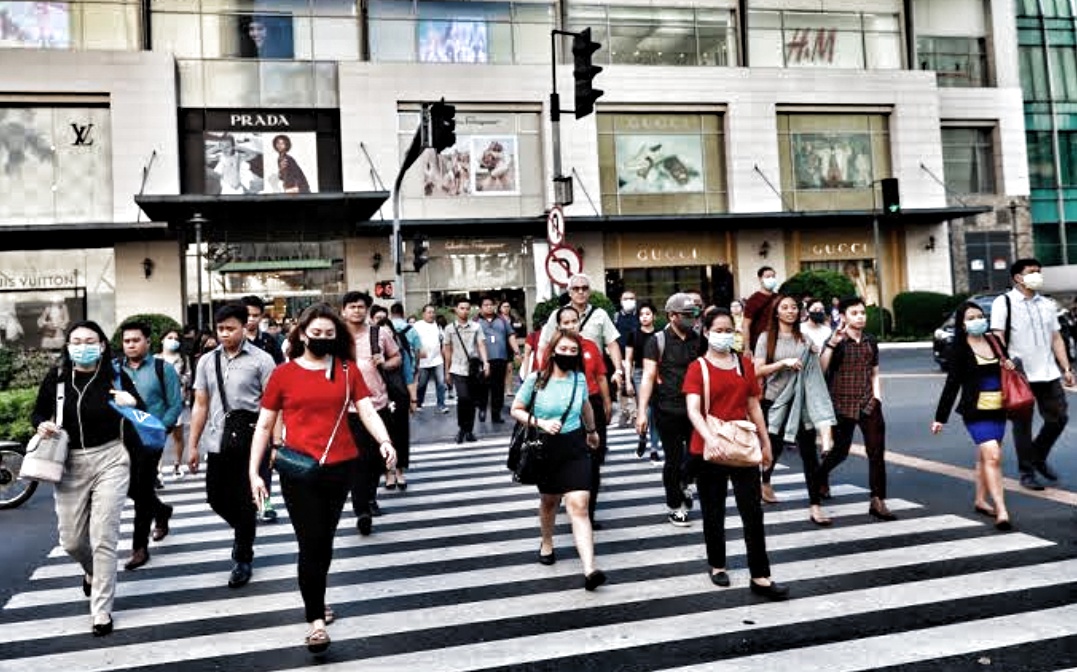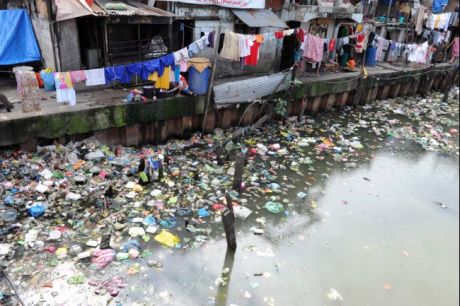
As much of the Philippines belatedly comes to terms with the enormity of the COVID-19 pandemic, it is, to be fair, important that quick and strong measures be implemented to contain the disease. A Code Red Sub-Level 2 alert has been raised by the Philippine government which when implemented restricts movement out of and into Metro Manila. The GMA New Online report notes that “Duterte urged the people not to panic, follow the orders of government and practice social distancing.” Such measures are, of course, subject to periodic review as more information comes in on how the crisis is playing out. It is, to say the least, unreasonable for critics to be expecting the authorities to get it right the first time. However, it is reasonable to expect government to be better-organised to ensure the right information is sent out to the public at the right times.
There are many scenarios to consider given that data on how the virus is transmitted is coming in trickles and the approaches to dealing with the crisis are, as a result, still in flux. Given that the set of most recommended measures to be taken may change from week to week in the coming months, response time and free flow of information is of the essence. People should not be too precious about their chosen “solution” and minds should be kept open (and partisan lines discarded) to ensure the best interests of all are top of mind. Thus, that the measures currently being taken in Metro Manila are still the subject of debate should not be cause for undue worry.
| SUPPORT INDEPENDENT SOCIAL COMMENTARY! Subscribe to our Substack community GRP Insider to receive by email our in-depth free weekly newsletter. Subscribe to our Substack newsletter, GRP Insider! Learn more |
Manila Times columnist Ben Kritz, for one, points out in his article “Kill the patient to cure the disease” that the manner with which Metro Manila, the Philippines biggest and most economically-significant metropolis, could exacerbate the spread of the disease there which is also now raging across much of the world. Kritz, instead, proposes that people be encouraged to disperse instead to reduce clustering behaviours that are conducive to the spread of disease…
What the government should have considered instead, and it still could be done, is to not “lock down” the metropolis, which tends to concentrate people, but to do what some institutions like the Asian Development Bank have done, and let people disperse. Shut down nonessential government offices, nonessential gatherings, museums and other tourist attractions, perhaps even impose shorter hours on malls and stores, and encourage those that are not necessary to close temporarily. Encourage businesses to organize work-from-home arrangements to whatever extent possible. Limit the number of people coming into the country from overseas, but otherwise let people move around.
The aim, according to Kritz, is to “reduce the concentration of the population in Metro Manila”. This is a particularly important thing to note considering that Metro Manila is, according to a Business Insider report, the most crowded city in the world where, in its poorest areas, “multiple families live in close quarters in makeshift communities”. The report, which was published in 2016, points to the chilling reality that there are really very few options available when disaster strikes an ill-prepared densely-packed megalopolis like Manila. It cites how, “In times of crisis, such as the series of flash floods that struck in 2009, gyms have been repurposed as shelters. But the density doesn’t get relieved, just relocated.”
Indeed, statistics in these times of pandemic mean very little in the Philippines. The enormous number of people residing “informally” (the euphemism for squatting preferred by politicians and “activists”) in Metro Manila’s slums and in the dark nooks and crannies of even its most affluent districts represents an immense statistical blackhole into which data is sucked in but out of which no information of statistical significance comes out. COVID-19 is likely to be but a drop in the cesspool of the Philippines’ vast squatter colonies where a huge variety of diseases had long been already sickening and killing people right under statistical radars.

In this regard, “social distancing” would be as oxymoronic to the average Metro Manila resident as organised public transport. This, plus the fact that even just a two to three percentage point increase in infection rates would likely swamp all of the Philippines’ available public health care and emergency response capabilities. Indeed, even the announcement of a citywide mall sale is enough to throw the entire metropolis into a panic followed by monstrous traffic gridlocks. The Philippines’ largest urban area is like a running engine on the brink of seizing up if not for the occasional drops of oil injected into it to just prevent that from happening. This means that careful thought should always be put in considering measures that could disrupt the flow of goods and services in and out of Metro Manila.
In short, while there is merit in looking to other countries for “best practice” in managing the COVID-19 outbreak, the worst-hit as well as the best-managed cases around the world don’t necessarily have Metro Manila’s more acute problems. It is important that Filipinos reach out to each other instead of succumb to colonial mentalities that have long been habitual comfort zones. The sooner Filipinos and their “thought leaders” realise that this is a problem that requires level heads to prevail over superstitious emotionalism and petty politics, the better the chance that they will see this crisis through.
- This latest Filipino-style ‘anti-corruption’ circus proves that the Philippines needs a serious reboot - November 16, 2025
- Filipinos literal sitting ducks as wind and floods from natural tropical typhoons amplified by years of neglect bear down - November 9, 2025
- Rally NA NAMAN??? - September 20, 2025
The Coronas Virus cannot survive in humid and hot weathers…so summertime is coming; this pandemic disease will soon be gone, as other endemic and pandemic diseases.
Metro Manila is overpopulated; full of Squatters, who are not practicing cleanliness. Dirty environments, which these Squatters live, will make more the COVID 19 spread. Along with malnourishment…these Squatters are mostly malnourished; and live together in cramped conditions.
Unfortunately, our evil politicians wanted these Squatters’ Votes… for themselves, to stay in power. So, they filled /overpopulated Metro Manila and other urban areas, with Squatters.
These people, who squat in peoples’ properties and government properties are more vulnerable to the COVID 19 pandemic disease, than anyboby else. They should go back to where they came from !
Well, probably this is the ONLY way to solve the overpopulation in the Philippines. Who needs RH Law when Filipinos loves to make more babies. A deadly disease like COVID-19 would solve it & its a weapon for Utilitarianism: https://en.wikipedia.org/wiki/Utilitarianism
ask WHO to publish names infected/died of covid19 or else it’s fake scary to sell vaccines to earn trillions of dollars for the WHO.
This is all thanks to this admin for their slow issuance of the travel ban and the pseudo community quarantine which resulted to exodus to their provinces!
The reason they didn’t want to impose travel ban despite proof of human transmission was because they didn’t want to offend China. Now look at the cost of that. He could have imposed travel ban from those coming from China and other countries which had cases during that time. Look what’s happening in the Ph now! Do you seriously believe the number of + cases in here? Ph don’t have and can’t afford to test all!
Another one, since they cancelled mass transpo, why did they not provide at least buses for those required to come to work? Late na dumating galing DOTr. Like those working in the hospitals, banks, groceries and pharmacies.
Magagalit nanaman ang DDS dahil nag suggest ng tama. What they fail to see is this admin is reactive never proactive. If you stop suggesting or criticizing they will not do their job.